Kirsi Inki, Sales Specialist, Economics, Economics Strategy, and Workstation Solutions, contributed to this report.
As the UK’s EU membership vote draws closer, the debate between the opposing campaigns, Vote Leave and Britain Stronger in Europe, has become more heated. The latest discussions have focused on the economy, immigration, and sovereignty.
Brexit’s Economic Impact
The Vote Leave campaign argues that the EU costs the UK £350 million ($500 million) per week, or almost £20 billion ($28 billion) per year—money the group says could go towards the National Health Service or building new schools. Britain Stronger in Europe says that the numbers fail to include a rebate of £100 million ($141 million) a week and EU spending in the UK, after which the net cost is much lower, at £5.7 billion per year ($8 billion).
Related: In Search of the Brexit Hedge
Britain Stronger in Europe also highlights the benefits to being part of the EU’s single market (including free movement of labor, capital, goods, and services) and say stepping out of it would be a costly mistake that could cause an economic slowdown, job losses, and financial instability for years to come.
Vote Leave asserts that the UK would keep trading with the remaining 27 EU countries in accordance with the Norwegian model, World Trade Organization rules, or other trade guidelines. They also say that leaving would allow them to negotiate free trade agreements with countries such as China, US, and India.
The Immigration Equation
According to the UK Office for National Statistics, the net number of migrants entering the UK in 2015 was around 333,000. Of those entering, 184,000 came from within the EU and 188,000 from non-EU countries. According to the EU’s fundamental principle on the free movement of people, EU citizens are allowed to live and work in any of the member states. Those who want the UK to stay in the EU say that immigration is good for the economy, but the opposition contends that immigration creates an enormous burden on public services. The latter group is also afraid that matters will be made worse as the number of EU nations expands. Britain Stronger in Europe disputes this by arguing that while the entry talks have been started with a handful of countries, it could be decades before Turkey joins the EU and that the UK will have an opportunity to veto new memberships should they become an issue.
Sovereignty Concerns
The Vote Leave campaign wants to regain control over UK’s borders and take back powers from EU institutions. It says EU regulations harm UK businesses and are created by unelected bureaucrats. Britain Stronger in Europe accepts a minor loss of sovereignty in return for free and fair trade among the EU member states. It also highlights that the unelected bureaucrats include UK citizens and claim it is easier to influence rules and regulations from inside the EU.
Markets React
The Brexit debate is expected to intensify ahead of the referendum vote on June 23. Most opinion polls have recently tilted towards the Vote Leave camp, although it is worth mentioning that during the UK general elections in 2015, polls were not good predictors of the actual results.
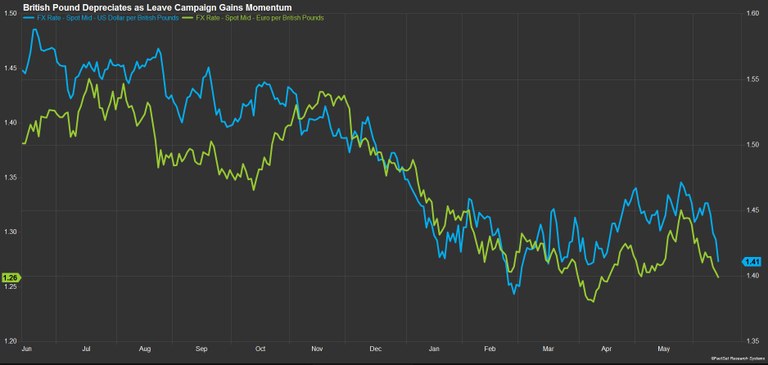 As a result there is uncertainty surrounding the Brexit vote, which can be seen in declining equity markets and UK gilt yields.
As a result there is uncertainty surrounding the Brexit vote, which can be seen in declining equity markets and UK gilt yields.
Related: What’s Behind the Fall in Global Bond Yields?
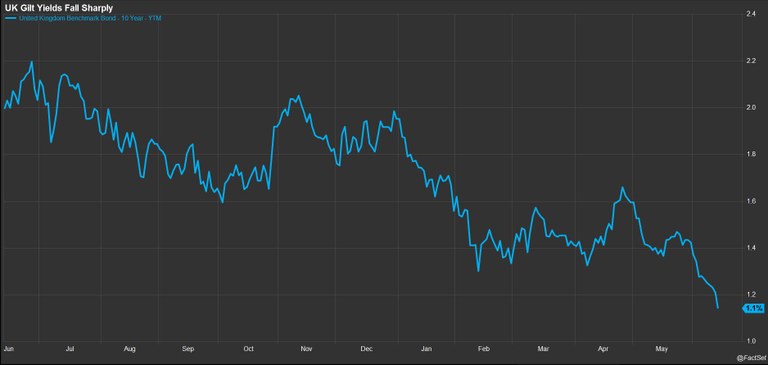
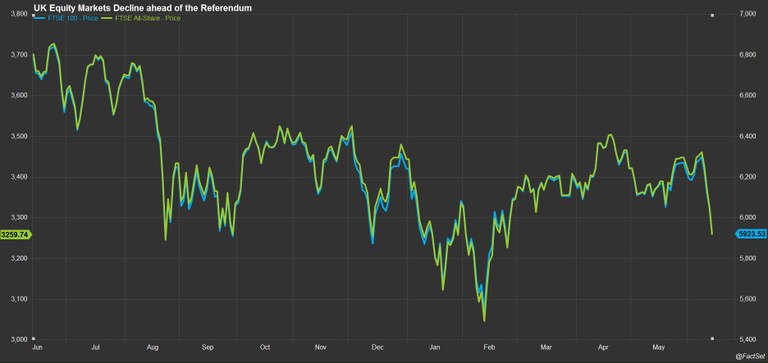
The British pound has also been volatile against the euro and US dollar since the campaigning started and corresponding Q2 estimates have come down from January levels.
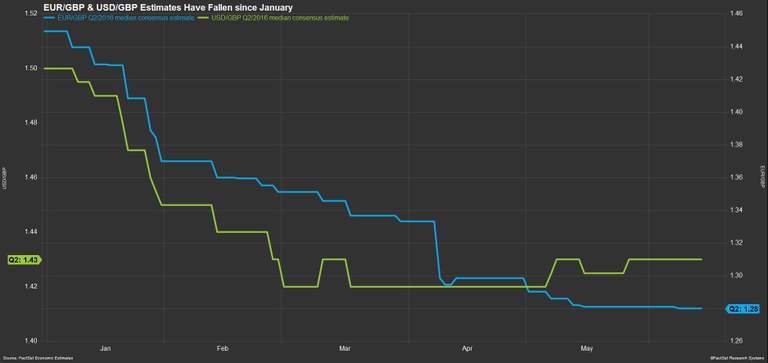
Although the depreciation of the British pound helped to boost UK exports in April, the picture may be completely different if the UK is faced with a myriad of trade negotiations after next week’s vote.
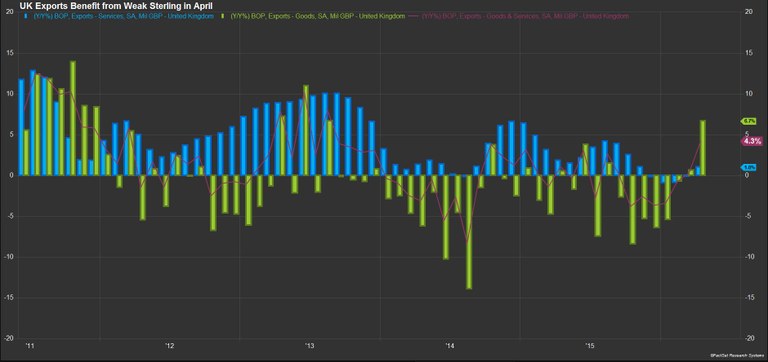
While the Bank of England has pledged to intervene if necessary, markets and central banks around the world will be following the results of the referendum vote closely.
